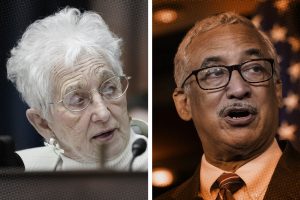Alabama Governor Kay Ivey recently signed a bill targeting diversity, equity, and inclusion (DEI) initiatives in the state. The bill, known as HB 159, aims to restrict the teaching of what it refers to as “divisive concepts” in education and workplace training programs.
The term “divisive concepts” in the bill refers to teachings or ideas that are perceived as promoting division or discrimination based on race, sex, nationality, or religion. This includes concepts such as critical race theory, which examines how systemic racism impacts society, as well as gender identity and LGBTQ+ rights.
Proponents of the bill argue that it is necessary to combat what they see as harmful and divisive ideas being promoted in schools and workplaces. They argue that such teachings can lead to discrimination and intolerance, and that it is important to promote unity and inclusivity instead.
However, critics of the bill contend that it is an attack on efforts to promote diversity, equity, and inclusion in Alabama. They argue that by restricting the teaching of certain concepts, the bill will only serve to perpetuate inequalities and suppress the voices of marginalized communities.
The signing of the bill has sparked debate and controversy in Alabama, with many expressing concern about the impact it will have on education and workplace training programs in the state. Critics fear that it will stifle important conversations about race, gender, and other forms of discrimination, and inhibit progress towards a more inclusive and equitable society.
It is important to note that HB 159 is just one of many similar bills that have been introduced in states across the country in recent years. The debate over DEI initiatives and “divisive concepts” is ongoing, with passionate arguments on both sides of the issue.
Ultimately, the signing of HB 159 in Alabama highlights the ongoing challenges and complexities surrounding diversity, equity, and inclusion in the United States. As the debate continues, it is essential for all stakeholders to engage in thoughtful and respectful dialogue to ensure that all voices are heard and that progress towards a more just and inclusive society can be made.



